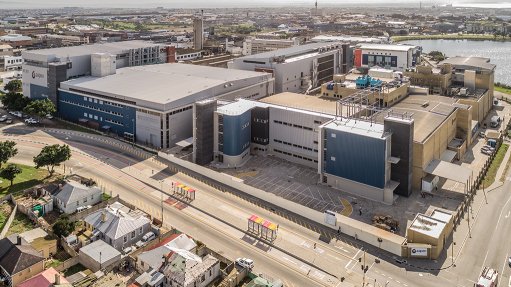
Aspen's manufacturing site in Gqeberha
Several international development finance institutions have partnered on a financing package for pharmaceuticals company Aspen Pharmacare to support vaccine production and other treatment therapies on the African continent.
The €600-million, about R10-billion, long-term financing package is supported by the US International Development Finance Corporation, the International Finance Corporation (IFC), French development institution Proparco and German investment and development company DEG.
IFC, as the private sector arm of the World Bank, will mobilise the funding – its largest healthcare investment and mobilisation to date.
Aspen is heeding the call of governments across Africa who have called on the international community to bolster the continent’s vaccine supply chain to respond to Covid-19 and also promote longer-term health sector resilience.
The African Union announced in April an ambition for Africa to manufacture 60% of its vaccine needs on the continent by 2040. Currently, Africa manufactures only 1% of the vaccines it uses.
Aspen has partnered with Johnson & Johnson to compound, finish, fill and package the Janssen (a Johnson & Johnson company) Covid-19 vaccine at its sterile facility in South Africa.
The company recently built a fully certified sterile injectables facility at its existing site at Gqeberha, South Africa. With this new facility, Aspen is able to offer Johnson & Johnson filling, finishing and packaging capacity for its Covid-19 vaccine, with the first batches having already been manufactured.
IFC MD Makhtar Diop says that, by partnering with Aspen, a leading vaccine manufacturer in Africa, and collaborating with partners in the development finance community, the World Bank Group can contribute to the continent’s continued vaccine manufacturing development and support knowledge sharing and technology exchanges.
“Together, we hope this will save lives now and help ensure that Africa is prepared ahead of any future health crises,” he adds.